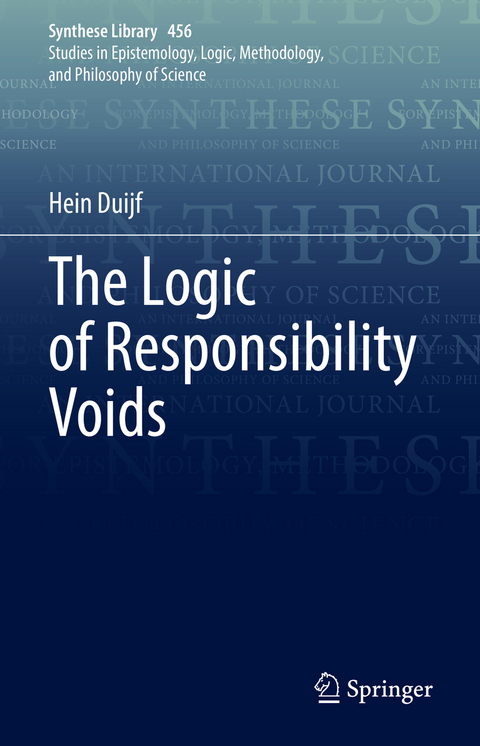
The Logic of Responsibility Voids
Springer International Publishing (Verlag)
9783030926540 (ISBN)
This book focuses on the problem of responsibility voids: these are cases where responsibility for a morally undesirable outcome cannot be attributed to any of the involved agents. Responsibility voids are thought to occur in collective decision-making and in the context of artificial intelligent systems. In these cases, philosophers worry that there is a shortfall of moral responsibility. In particular, such voids are often assumed to justify a notion of collective responsibility that cannot be reduced to individual responsibility. One of the aims of the book is to study how collective responsibility and joint action relate to individual responsibility and individual actions. The book offers a unifying framework for modelling moral responsibility by drawing from modal logic and game theory.
The book investigates the possibility and scope of the problem of responsibility voids. One of its characteristics is its pluralistic perspective on moral responsibility: in contrast to giving a unique and all-encompassing definition of it, the book makes progress by spelling out and modelling several conceptions of moral responsibility. One of the appealing features of the book is that a relatively small range of models is used to investigate a variety of conceptions of moral responsibility. The unifying framework can thus be used to characterize the conditions under which responsibility voids are ruled out.
Dr. Hein Duijf is currently an Assistant Professor at the Ludwig-Maximilians-Universitat Munich and has a PhD in Philosophy and Artificial Intelligence from Utrecht University. He was previously a postdoctoral researcher at Utrecht University and the Vrije Universiteit Amsterdam. His work can be roughly divided into two strands. In the first line of research, which started as part of the project the Social Epistemology of Argumentation, he investigates the epistemic risks and potential benefits of group deliberation by developing agent-based models and by taking inspiration from behavioural sciences (including social psychology, economics, and the social sciences). In the second line of work, which began as part of the project Responsible Intelligent Systems, he studies moral responsibility, collective agency, machine ethics, and deontic reasoning.
1. Introduction: The Problem of Responsibility Voids.- 2. Games and Agency.- 3. Collective Obligations, Group Plans, and Individual Actions.- 4. Guilty Minds and Collective Know-how.- 5. Joint Action, Participatory Intentions, and Team Reasoning.- 6. Practical Reasoning and Cooperation.- 7. Conclusion: The Conditions for Responsibility Voids and Gaps.
| Erscheinungsdatum | 09.03.2022 |
|---|---|
| Reihe/Serie | Synthese Library |
| Zusatzinfo | XI, 189 p. 1 illus. |
| Verlagsort | Cham |
| Sprache | englisch |
| Maße | 155 x 235 mm |
| Gewicht | 463 g |
| Themenwelt | Geisteswissenschaften ► Philosophie ► Allgemeines / Lexika |
| Geisteswissenschaften ► Philosophie ► Ethik | |
| Geisteswissenschaften ► Philosophie ► Logik | |
| Wirtschaft ► Volkswirtschaftslehre ► Mikroökonomie | |
| Schlagworte | Collective Action • Game Theory • Logic • Multi-agent Systems • Responsible Intelligent Systems • simulation and modelling • The Social Epistemology of Argumentation |
| ISBN-13 | 9783030926540 / 9783030926540 |
| Zustand | Neuware |
| Informationen gemäß Produktsicherheitsverordnung (GPSR) | |
| Haben Sie eine Frage zum Produkt? |
aus dem Bereich


